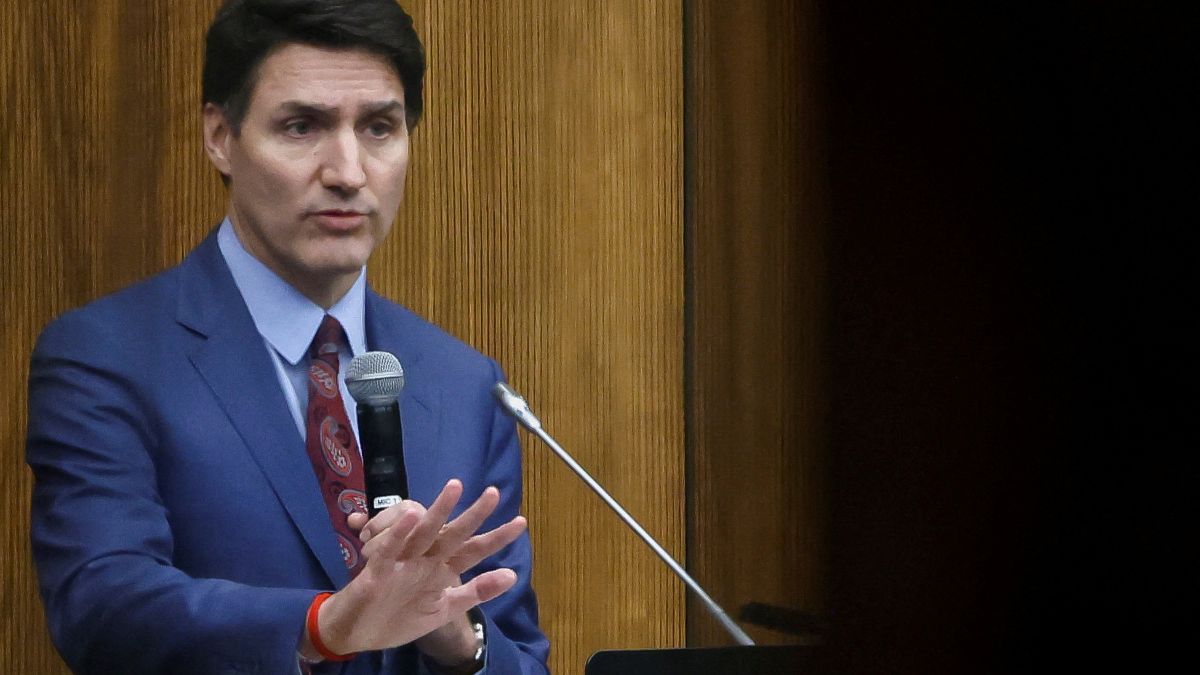Canadian Prime Minister Justin Trudeau is reportedly preparing to step down as Liberal Party leader. A Reuters report claims he could resign as early as Monday (January 6). Trudeau has been under immense pressure to depart and make way for a new Liberal leader who can lead the party into the forthcoming general elections this year.
Canada’s political crisis increased after Chrystia Freeland last month resigned as the country’s finance minister and deputy prime minister. Trudeau, who had so far avoided demands to exit, was faced with renewed calls to step down and is expected to heed them finally.
The Canadian premier, under whom Ottawa’s ties with New Delhi hit rock bottom, has been accused of targeting India to deflect attention from his sinking popularity and rising domestic challenges such as the cost-of-living crisis.
Let’s take a closer look.
Downturn in India-Canada ties
India’s relations with Canada plunged after
PM Justin Trudeau alleged the Indian government’s involvement in the killing of Khalistani separatist Hardeep Singh Nijjar.
In September 2023, both sides expelled each other’s diplomats. This came after Canada announced that it was “actively pursuing credible allegations” linking Indian government agents to Nijjar’s murder.
The Ministry of External Affairs (MEA) said at the time that the expulsion of the Canadian diplomat was over “growing concern at the interference of Canadian diplomats in our internal matters and their involvement in anti-India activities”.
India had also briefly suspended its visa operations in Canada, citing security threats.
In October 2023, Canada recalled its 40 diplomats from India as New Delhi called for “parity” in diplomatic presence.
Ties further soured last October when New Delhi expelled six high-ranking Canadian diplomats and withdrew its diplomats from Canada. On the other hand, Ottawa said it expelled six Indian diplomats including the High Commissioner Sanjay Kumar Verma after naming him and other officials as “persons of interest” in the June 2023 killing of Nijjar.
The Royal Canadian Mounted Police (RCMP) accused “agents” of the Indian government of indulging in “serious criminal activity” such as “homicide, extortion, intimidation, and coercion” on Canadian territory.
India trashed the allegations, calling the charges against Indian diplomats “preposterous imputations” and part of the Trudeau government’s “vote bank” politics.
The MEA said in a statement, “This latest step follows interactions that have again witnessed assertions without any facts. This leaves little doubt that on the pretext of an investigation, there is a deliberate strategy of smearing India for political gains.”
It added, “The Trudeau Government has consciously provided space to violent extremists and terrorists to harass, threaten and intimidate Indian diplomats and community leaders in Canada.”
India says Canada has not provided any evidence linking its officials to Nijjar’s murder.
Did India row lead to Trudeau’s downfall?
India has accused the Trudeau government of making Canada a safe haven for
Khalistani extremists.
New Delhi has also alleged the Canadian government of indulging in “vote bank politics”. In 2016, Trudeau told reporters he had more Sikhs – four – in his Cabinet than PM Narendra Modi’s in India.
Canada is home to as many as 771,790 Sikhs as of the 2021 census, forming the second-largest Sikh population outside Punjab in India. Sikhs wield significant influence in Canadian politics.
Besides a downturn in relations with India, Trudeau is facing internal challenges within his party.
At least 21 Liberal MPs have publicly urged Trudeau to step down, many of them after Freeland’s resignation on December 16, 2024. Last October, 24 Liberal MPs signed a letter seeking his resignation in the wake of the party losing two federal byelections in its safe seats of Toronto and Montreal over the summer.
Trudeau’s popularity in Canada has declined since the COVID-19 pandemic. His government has failed to bring down inflation and unemployment, while the cost-of-living crisis has made housing unaffordable for many.
The Liberal Party is predicted to lose the federal elections. The Conservative Party is currently 21 points ahead of the Liberals. An Ipsos poll last year found that only 28 per cent of Canadians want Trudeau to be re-elected and only 26 per cent would vote for the Liberals.
Trudeau’s public targeting of India is also being seen as a distraction from alleged Chinese interference in Canadian elections.
Foreign affairs expert Robinder Sachdev told ANI last October, “China has been interfering in Canadian elections since 2019 and 2021. There are huge controversies about that. In order to divert and distract attention from Chinagate, in which Trudeau is being labelled as a weak leader, Trudeau very wisely thought to amplify, to play up India to distract attention within his own country on his leadership failures. So we can expect more of this as Trudeau took a conscious decision of targeting India to deflect from his own problems and troubles regarding Chinagate,” he said.
With inputs from agencies

)